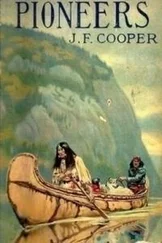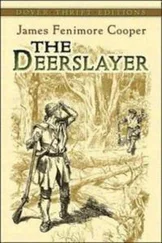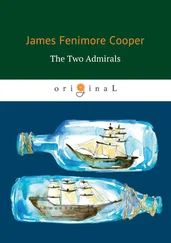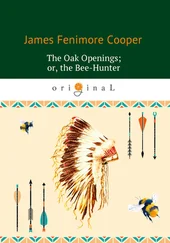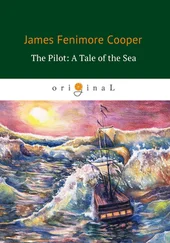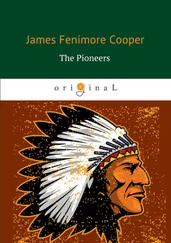Джеймс Купер - The Prairie
Здесь есть возможность читать онлайн «Джеймс Купер - The Prairie» весь текст электронной книги совершенно бесплатно (целиком полную версию без сокращений). В некоторых случаях можно слушать аудио, скачать через торрент в формате fb2 и присутствует краткое содержание. Год выпуска: 2014, Издательство: epubBooks Classics, Жанр: Исторические приключения, Приключения про индейцев, на английском языке. Описание произведения, (предисловие) а так же отзывы посетителей доступны на портале библиотеки ЛибКат.
- Название:The Prairie
- Автор:
- Издательство:epubBooks Classics
- Жанр:
- Год:2014
- ISBN:нет данных
- Рейтинг книги:5 / 5. Голосов: 1
-
Избранное:Добавить в избранное
- Отзывы:
-
Ваша оценка:
- 100
- 1
- 2
- 3
- 4
- 5
The Prairie: краткое содержание, описание и аннотация
Предлагаем к чтению аннотацию, описание, краткое содержание или предисловие (зависит от того, что написал сам автор книги «The Prairie»). Если вы не нашли необходимую информацию о книге — напишите в комментариях, мы постараемся отыскать её.
The Prairie — читать онлайн бесплатно полную книгу (весь текст) целиком
Ниже представлен текст книги, разбитый по страницам. Система сохранения места последней прочитанной страницы, позволяет с удобством читать онлайн бесплатно книгу «The Prairie», без необходимости каждый раз заново искать на чём Вы остановились. Поставьте закладку, и сможете в любой момент перейти на страницу, на которой закончили чтение.
Интервал:
Закладка:
The second description of these natural meadows lies west of the Mississippi, at a distance of a few hundred miles from that river, and is called the Great Prairies. They resemble the steppes of Tartary more than any other known portion of Christendom; being, in fact, a vast country, incapable of sustaining a dense population, in the absence of the two great necessaries already named. Rivers abound, it is true; but this region is nearly destitute of brooks and the smaller water courses, which tend so much to comfort and fertility.
The origin and date of the Great American Prairies form one of natures most majestic mysteries. The general character of the United States, of the Canadas, and of Mexico, is that of luxuriant fertility. It would be difficult to find another portion of the world, of the same extent, which has so little useless land as the inhabited parts of the American Union. Most of the mountains are arable, and even the prairies, in this section of the republic, are of deep alluvion. The same is true between the Rocky Mountains and the Pacific. Between the two lies the broad belt, of comparative desert, which is the scene of this tale, appearing to interpose a barrier to the progress of the American people westward.
The Great Prairies appear to be the final gathering place of the red men. The remnants of the Mohicans, and the Delawares, of the Creeks, Choctaws, and Cherokees, are destined to fulfil their time on these vast plains. The entire number of the Indians, within the Union, is differently computed, at between one and three hundred thousand souls. Most of them inhabit the country west of the Mississippi. At the period of the tale, they dwelt in open hostility; national feuds passing from generation to generation. The power of the republic has done much to restore peace to these wild scenes, and it is now possible to travel in security, where civilised man did not dare to pass unprotected five–and–twenty years ago.
The reader, who has perused the two former works, of which this is the natural successor, will recognise an old acquaintance in the principal character of the story. We have here brought him to his end, and we trust he will be permitted to slumber in the peace of the just.
J. F. Cooper Paris June 1832
Chapter I
I pray thee, shepherd, if that love or gold,
Can in this desert place buy entertainment,
Bring us where we may rest ourselves and feed.
Much was said and written, at the time, concerning the policy of adding the vast regions of Louisiana, to the already immense and but half–tenanted territories of the United States. As the warmth of controversy however subsided, and party considerations gave place to more liberal views, the wisdom of the measure began to be generally conceded. It soon became apparent to the meanest capacity, that, while nature had placed a barrier of desert to the extension of our population in the west, the measure had made us the masters of a belt of fertile country, which, in the revolutions of the day, might have become the property of a rival nation. It gave us the sole command of the great thoroughfare of the interior, and placed the countless tribes of savages, who lay along our borders, entirely within our control; it reconciled conflicting rights, and quieted national distrusts; it opened a thousand avenues to the inland trade, and to the waters of the Pacific; and, if ever time or necessity shall require a peaceful division of this vast empire, it assures us of a neighbour that will possess our language, our religion, our institutions, and it is also to be hoped, our sense of political justice.
Although the purchase was made in 1803, the spring of the succeeding year was permitted to open, before the official prudence of the Spaniard, who held the province for his European master, admitted the authority, or even of the entrance of its new proprietors. But the forms of the transfer were no sooner completed, and the new government acknowledged, than swarms of that restless people, which is ever found hovering on the skirts of American society, plunged into the thickets that fringed the right bank of the Mississippi, with the same careless hardihood, as had already sustained so many of them in their toilsome progress from the Atlantic states, to the eastern shores of the "father of rivers." [1] The Mississippi is thus termed in several of the Indian languages. The reader will gain a more just idea of the importance of this stream, if he recalls to mind the fact, that the Missouri and the Mississippi are properly the same river. Their united lengths cannot be greatly short of four thousand miles.
Time was necessary to blend the numerous and affluent colonists of the lower province with their new compatriots; but the thinner and more humble population above, was almost immediately swallowed in the vortex which attended the tide of instant emigration. The inroad from the east was a new and sudden out–breaking of a people, who had endured a momentary restraint, after having been rendered nearly resistless by success. The toils and hazards of former undertakings were forgotten, as these endless and unexplored regions, with all their fancied as well as real advantages, were laid open to their enterprise. The consequences were such as might easily have been anticipated, from so tempting an offering, placed, as it was, before the eyes of a race long trained in adventure and nurtured in difficulties.
Thousands of the elders, of what were then called the New States [2] All the states admitted to the American Union, since the revolution, are called New States, with the exception of Vermont: that had claims before the war; which were not, however, admitted until a later day.
, broke up from the enjoyment of their hard–earned indulgences, and were to be seen leading long files of descendants, born and reared in the forests of Ohio and Kentucky, deeper into the land, in quest of that which might be termed, without the aid of poetry, their natural and more congenial atmosphere. The distinguished and resolute forester who first penetrated the wilds of the latter state, was of the number. This adventurous and venerable patriarch was now seen making his last remove; placing the "endless river" between him and the multitude his own success had drawn around him, and seeking for the renewal of enjoyments which were rendered worthless in his eyes, when trammelled by the forms of human institutions. [3] Colonel Boon, the patriarch of Kentucky. This venerable and hardy pioneer of civilisation emigrated to an estate three hundred miles west of the Mississippi, in his ninety–second year, because he found a population of ten to the square mile, inconveniently crowded!
In the pursuit of adventures such as these, men are ordinarily governed by their habits or deluded by their wishes. A few, led by the phantoms of hope, and ambitious of sudden affluence, sought the mines of the virgin territory; but by far the greater portion of the emigrants were satisfied to establish themselves along the margins of the larger water–courses, content with the rich returns that the generous, alluvial, bottoms of the rivers never fail to bestow on the most desultory industry. In this manner were communities formed with magical rapidity; and most of those who witnessed the purchase of the empty empire, have lived to see already a populous and sovereign state, parcelled from its inhabitants, and received into the bosom of the national Union, on terms of political equality.
The incidents and scenes which are connected with this legend, occurred in the earliest periods of the enterprises which have led to so great and so speedy a result.
The harvest of the first year of our possession had long been passed, and the fading foliage of a few scattered trees was already beginning to exhibit the hues and tints of autumn, when a train of wagons issued from the bed of a dry rivulet, to pursue its course across the undulating surface, of what, in the language of the country of which we write, is called a "rolling prairie." The vehicles, loaded with household goods and implements of husbandry, the few straggling sheep and cattle that were herded in the rear, and the rugged appearance and careless mien of the sturdy men who loitered at the sides of the lingering teams, united to announce a band of emigrants seeking for the Elderado of the West. Contrary to the usual practice of the men of their caste, this party had left the fertile bottoms of the low country, and had found its way, by means only known to such adventurers, across glen and torrent, over deep morasses and arid wastes, to a point far beyond the usual limits of civilised habitations. In their front were stretched those broad plains, which extend, with so little diversity of character, to the bases of the Rocky Mountains; and many long and dreary miles in their rear, foamed the swift and turbid waters of La Platte.
Читать дальшеИнтервал:
Закладка:
Похожие книги на «The Prairie»
Представляем Вашему вниманию похожие книги на «The Prairie» списком для выбора. Мы отобрали схожую по названию и смыслу литературу в надежде предоставить читателям больше вариантов отыскать новые, интересные, ещё непрочитанные произведения.
Обсуждение, отзывы о книге «The Prairie» и просто собственные мнения читателей. Оставьте ваши комментарии, напишите, что Вы думаете о произведении, его смысле или главных героях. Укажите что конкретно понравилось, а что нет, и почему Вы так считаете.
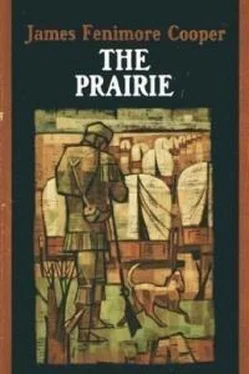

![Джеймс Купер - Пионеры, или У истоков Саскуиханны [The Pioneers, or The sources of the Susquehannah]](/books/395797/dzhejms-kuper-pionery-ili-u-istokov-saskuihanny-t-thumb.webp)
![Джеймс Купер - Последний из могикан, или Повествование о 1757 годе [The Last Of The Mohicans]](/books/397341/dzhejms-kuper-poslednij-iz-mogikan-ili-povestvovan-thumb.webp)
![Джеймс Купер - Зверобой, или Первая тропа войны [The Deerslayer, or The First Warpath]](/books/398571/dzhejms-kuper-zveroboj-ili-pervaya-tropa-vojny-the-thumb.webp)
